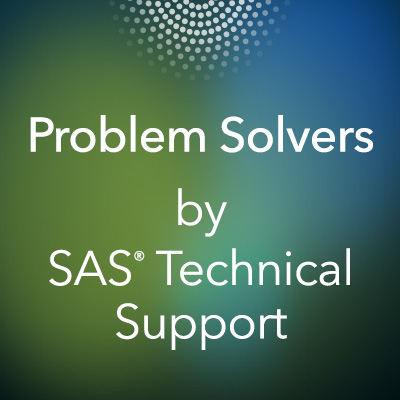SAS® Certified Clinical Trials Programmer Using SAS®9
Validates your ability to apply SAS® programming skills to clinical trials data:
Clinical Trials Process:
- Describe the clinical research process (phases, key roles, key organizations).
- Interpret a Statistical Analysis Plan.
- Derive programming requirements from an SAP and an annotated Case Report Form.
- Describe regulatory requirements (principles of 21 CFR Part 11, International Conference on Harmonization, Good Clinical Practices).
Clinical Trials Data Structures
- Identify the classes of clinical trials data (demographic, lab, baseline, concomitant medication, etc.).
- Identify key CDISC principals and terms.
- Describe the structure and purpose of the CDISC SDTM data model.
- Describe the structure and purpose of the CDISC ADaM data model.
- Describe the contents and purpose of define.xml.
Import and Export Clinical Trials Data
- Combine SAS data sets.
- Efficiently import and subset SAS data sets.
- Access data in an Excel workbook (LIBNAME and PROC IMPORT/EXPORT).
- Create temporary and permanent SAS data sets.
- Apply regulatory requirements to exported SAS data sets (SAS V5 requirements).
Manage Clinical Trials Data
- Investigate SAS data libraries using base SAS utility procedures (PRINT, CONTENTS, FREQ).
- Access DICTIONARY Tables using the SQL procedure.
- Sort observations in a SAS data set.
- Create and modify variable attributes using options and statements in the DATA step.
- Examine and explore clinical trials input data (find outliers, missing vs. zero values, etc).
Transform Clinical Trials Data
- Process data using DO LOOPS.
- Retain variables across observations.
- Use assignment statements in the DATA step.
- Apply categorization and windowing techniques to clinical trials data.
- Use SAS functions to convert character data to numeric and vice versa.
- Use SAS functions to manipulate character data, numeric data, and SAS date values.
- Transpose SAS data sets.
- Apply 'observation carry forward' techniques to clinical trials data (LOCF, BOCF, WOCF).
- Calculate 'change from baseline' results.
- Obtain counts of events in clinical trials.
Apply Statistical Procedures for Clinical Trials:
- Use SAS procedures to obtain descriptive statistics for clinical trials data (FREQ, UNIVARIATE, MEANS, SUMMARY).
- Use PROC FREQ to obtain p-values for categorical data (2x2 and NxP test for association).
- Use PROC TTEST to obtain p-values for continuous data (one-sample, paired and two-sample t-tests).
- Create output data sets from statistical procedures.
Macro Programming for Clinical Trials
- Create and use user-defined and automatic macro variables.
- Automate programs by defining and calling macros.
- Use system options to debug macros and display values of macro variables in the SAS log (MPRINT, SYMBOLGEN, MLOGIC, MACROGEN).
Report Clinical Trials Results
- Use PROC REPORT to produce tables and listings for clinical trials reports.
- Use ODS and global statements to produce and augment clinical trials reports.
Validate Clinical Trial Data Reporting
- Explain the principles of programming validation in the clinical trial industry.
- Utilize the log file to validate clinical trial data reporting.
- Use programming techniques to validate clinical trial data reporting (PROC COMPARE, MSGLEVEL).
- identify and Resolve data, syntax and logic errors.
Clinical SAS Programmer -EpochSASTraining
Largest and Oldest SAS Training Institute
http://epochresearchinstitute.com
+91 79 4032 7000| +91 80 9575 7700|+91 99404 52792
Whats-app: +91 99789 95178 | +91 63608 17936
Epoch Research Institute Links:
#CLINICALSASPROGRAMMING,#EPOCHRESEARCHINSTITUTE,
#EPOCHSASFEEDBACK,#LEARNSASPROGRAMMINGONLINE,
#SASCLINICALONLINETRAININ,#SASELEARNING,#SASONLINETRAINING, #SASTRAINING,#CLINICALSASPROGRAMMING,#EPOCHRESEARCHINSTITUTE,
#EPOCHSASFEEDBACK,#LEARNSASPROGRAMMINGONLINE,
#EPOCHSASFEEDBACK,#LEARNSASPROGRAMMINGONLINE,
#SASCLINICALONLINETRAININ,#SASELEARNING,#SASONLINETRAINING, #SASTRAINING,#SASTraininginAhmedabad,#SASTraininginBangalore,
#SASTraininginChennai,#SASbusinessanalytics,#SASDatasciencetraining,
#Datamanagement,#SASDataintegrationdeveloper



No comments:
Post a Comment